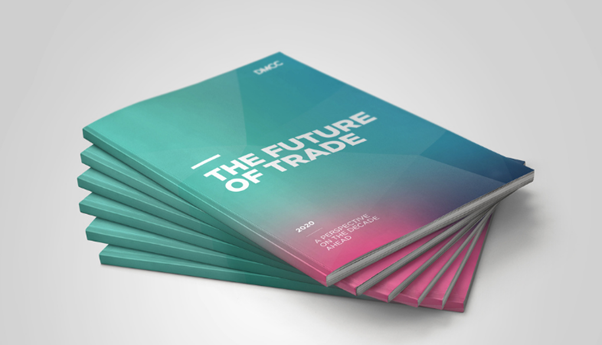- The US, UAE and UK make up the top three hubs, according to DMCC’s Commodity Trade Index
- Index assesses the role of 10 key trading hubs within global trade
- Second iteration released in DMCC’s flagship thought leadership report – the Future of Trade 2020
The United Arab Emirates (UAE) ranks among the top three global commodity trading hubs, according to DMCC’s latest Future of Trade 2020 report. The Commodity Trade Index (CTI) assesses the role of 10 key trading hubs within global trade. The rankings are based on an analysis of 10 indicators across the three key areas of: locational and trading partners, commodity endowments and institutional factors.
The 2020 Index sees the United States (US) marginally overtake the UAE for the top spot scoring 61%, with high scores for institutional and commodity endowments factors. Having led the index in 2018, the UAE is only one percentage point behind the US while having increased its overall score from 57% to 60%. The United Kingdom (UK) ranks third with an overall score of 46% coming in strong on trading and institutional factors. Since 2018, the Netherlands saw the biggest fall, slipping from fourth to seventh place, after recording a decline in its relative performance for locational and trading partner factors.
Feryal Ahmadi, Chief Operating Officer, DMCC, said: “The Commodity Trade Index published in the latest Future of Trade report offers important insight. The UAE’s favourable position reflects a carefully curated business ecosystem with significant investment in infrastructure and technology, and a priority assigned to the ease of doing business. This enabling commercial environment has enabled the country to secure its ranking among the top global commodity trading hubs in the world. To maintain the position, the UAE will continue to innovate products, services and regulations and set the industry standard.”
The UAE received the top score for commodity endowment factors (74%) well ahead of all the other trading hubs, largely due to its oil exports and natural resource rents as a share of GDP. The country came fifth for institutional factors (70%), with a strength in contract enforcement and the flexibility to improve the ability of companies to trade across borders. As for locational and trading partner factors, the UAE came in sixth.
The rest of the top 10 ranking includes Switzerland (44%), Singapore (42%), Hong Kong (41%), the Netherlands (40%), China (36%), Nigeria (30%) and South Africa (19%).
The Future of Trade 2020 report includes two other indices. The Industry Digitalisation Index, launched in 2016, tracks businesses’ digitalisation progress across sectors and spans four separate functions of digitalisation in the processes of trade and general business activities. The Sustainability Index, launched this year, tracks the trade of environmentally sound technologies. More information on the indices is available at: www.futureoftrade.com.
The Future of Trade 2020 is DMCC’s flagship thought leadership report which is now in its third edition. It examines the impact of geopolitics, technology, COVID-19 and global economic trends on the future of trade, with a focus on trade growth, supply chains, trade finance, infrastructure and sustainability. In addition to offering analysis, it provides clear and concise recommendations to governments, policymakers and businesses.
